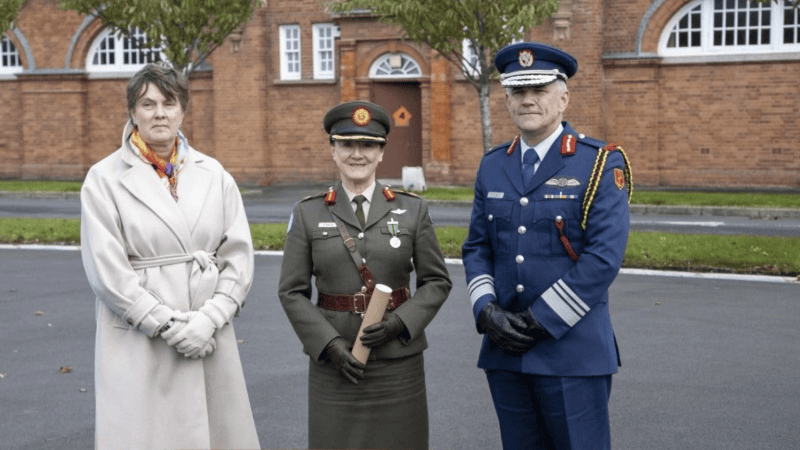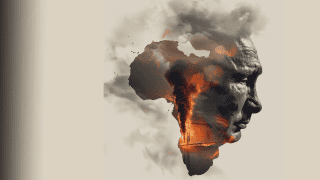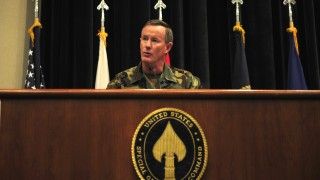- ANALIZA
- KOMENTARZ
Europe Chooses: Neutral Ireland Preferred over "Hawkish" Poland
The European Union countries have once again chosen the head of the European Union Military Committee from among neutral countries. The current Austrian general in this position will be replaced by an Irish general, deemed a better candidate than the generals from Slovenia and Poland.

On Wednesday, May 15, 2024, the 27 Chiefs of Defence of the EU member states elected a new chair of the European Union Military Committee (EUMC), who will replace General Robert Brieger of Austria for a three-year term starting on May 25, 2025. This time, the position was entrusted to the Irish Chief of Defence Forces, General Seán Clancy, also from a neutral country.
The situation was unusual because the EUMC members had two other candidates to choose from, both from countries more inclined towards military action and members of the North Atlantic Treaty Organization: Slovenia and Poland. However, they again chose a representative from a neutral country, despite the fact that the European Union Military Committee is the most important advisory body for EU institutions on defence matters.
The lack of selection of the Polish candidate, General Sławomir Wojciechowski, can be somewhat understood. He is currently „only” Poland’s military representative to the EU and NATO and has never previously held the position of Chief of the General Staff. Traditionally, the chair of the EUMC has been chosen from those who have held that position. A much more „formidable” opponent for Seán Clancy, however, was the experienced Chief of the General Staff of the Slovenian Armed Forces, General Robert Glovaš. Nonetheless, he also ultimately lost in the secret ballot.
Observers emphasize that General Seán Clancy is certainly a highly skilled specialist, and, moreover, no representative from Ireland has ever held such a position before. Additionally, the Irish Defence Forces will gain their first four-star general in 100 years, as the election to the position of EUMC chair comes with this promotion. There is also speculation that Ireland might ultimately follow the example of countries like Finland or Sweden and abandon its neutrality.
However, the choice should indeed be surprising. Europe is currently at war, and EU actions should be focused on supporting effective defence without any signs of neutrality. Therefore, General Clancy must be prepared to operate not only in Ireland but throughout the European Union and in allied operations, which are often conducted outside Europe as well. In this field, countries that are also NATO members have significantly more experience. This is not just about military knowledge but also access to information and systems (e.g., cryptographic systems) that only NATO countries possess.
Now, a general from a neutral country will be advising the most important diplomats of the European Union on defence matters, including the High Representative of the EU for Foreign Affairs and Security Policy, Josep Borrell, who is responsible for directing EU defence policy among other duties.
Of course, prior to the Irishman, an „neutral” Austrian also held the position of EUMC chair. However, General Brieger was elected before Russia began a full-scale invasion in Ukraine. Given the current situation in Europe, economic matters remain important, but defence policy has taken precedence. Additionally, there is tension in the Red Sea region, where the United States and the European Union are somewhat competing for leadership in a coalition protecting maritime communication lines.
Interestingly, it’s reported that the votes of large EU member states were decisive in choosing Clancy over the Slovenian general. On the other hand, General Wojciechowski’s candidacy supposedly fell through because he was seen as a „hawk,” firmly oriented towards countering Russia and preparing for defence against aggression from the east. Western European countries were concerned that he wouldn’t allocate sufficient attention to them in this regard.
Such views might hinder Poland from assuming another important position linked to the war in Ukraine - the Commissioner for Defence, which is set to be established in the next European Commission term. A serious candidate for this role is Polish Minister of Foreign Affairs Radosław Sikorski. His role would be significant not only due to Vladimir Putin’s aggressive actions in the Russian Federation but also in the event that Donald Trump is elected for another term as President of the United States.
The choice of a general from neutral armed forces (or rather defence) for the „military” position of EUMC chair is somewhat contradictory to what EU countries had previously declared regarding Russian actions in Ukraine. Perhaps this was a reaction to announcements from countries like France, suggesting the possibility of deploying their own soldiers to Ukrainian territory. Some EU countries strongly oppose this, and General Clancy may be seen as a guarantee of such a cautious stance.
On the other hand, observers emphasize that while Ireland may not have significant defence capabilities, it „has traditions in crisis management.” Recognizing that the European Union is currently in such a time, the choice would therefore be quite appropriate.
To reinforce this opinion, a fragment of the official statement from the Irish government is cited, in which Deputy Prime Minister and Minister of Defence Micheál Martin praises the new EUMC chair: „I warmly welcome the election of Lieutenant General Seán Clancy as the Chair-elect of the European Union Military Committee. Lieutenant General Clancy’s appointment comes at a crucial moment for Europe, amidst increased instability and insecurity in the region and globally. He brings with him nearly forty years of outstanding military service in the Irish Defence Forces, as well as rich experience in defence and partnership-building skills. He is ideally suited to deploy his skills as the Chair of the EUMC at such a pivotal moment for the military pillar of the EU’s Common Security and Defence Policy.”















